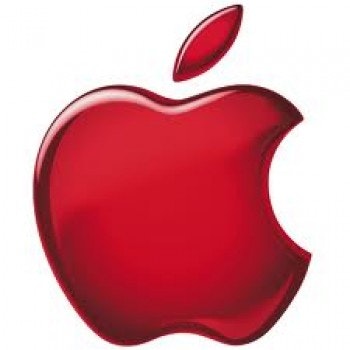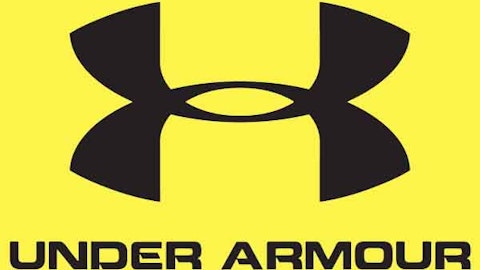A lot of investors think that when Warren Buffett says to invest within one’s own circle of competence, he means invest in companies whose operations you understand. This misguided notion causes people to think “I understand Apple Inc. (NASDAQ:AAPL)’s products, so it’s within my circle of competence and I can invest in it.”
These investors believe that Buffett just doesn’t understand how software works or what mobile apps are — that he’s just too old to understand these concepts.

A circle of competence is not defined by someone’s understanding of a company’s products — though such an understanding is usually necessary. Instead, it’s defined by an individual’s ability to determine the earnings level of a company five or 10 years into the future.
This definition of a circle of competence is problematic for investors who wish to invest in high-flying tech companies, so they choose to ignore it. Apple Inc. (NASDAQ:AAPL) is earning lots of money even after competition has started to eat into margins. This has sucked in smart money and dumb money alike — AAPL was owned by more hedge funds than any other U.S. stock for much of 2012. However, how many of those investors can say “I know what Apple will earn in 10 years” or even “I know what products Apple will be making in 10 years” or “I know what the competitive environment will look like in 10 years”?
If you can’t answer those three questions, then Apple Inc. (NASDAQ:AAPL) isn’t within your circle of competence. You don’t understand Apple Inc. (NASDAQ:AAPL) any better than Buffett does, you’re just less selective than Buffett. Or you’re less honest with yourself than Buffett is with himself.
I’d venture to say that Apple Inc. (NASDAQ:AAPL) is not within any investor’s circle of competence. Therefore, the stock should only be purchased by short-term traders and speculators. It should not be bought by investors trying to maximize return per unit of risk — at least not at its current stock price.
If it were to trade for less than tangible assets, or less than net cash, then it would enter the investor’s radar by virtue of shifting the analysis from earning power to hard asset preservation. Many investors can look at Apple Inc. (NASDAQ:AAPL) at 1x tangible assets and say “that stock is cheap.” Apple Inc. (NASDAQ:AAPL) is clearly worth more than tangible assets — it has special characteristics that make it an above-average, even exceptional, business. Exceptional businesses should not trade for tangible book value.
Unfortunately, AAPL will never trade for tangible book — unless it is headed for bankruptcy. As a result, investors are better off ignoring the company.
Alternatives to Speculation
Instead of speculating on a company with a wonderful past but an uncertain future, investors should concentrate on buying great businesses that will stand the test of time.
For example, a company like Moody’s Corporation (NYSE:MCO) has high profitability and superior business certainty than Apple Inc. (NASDAQ:AAPL). Moody’s Corporation (NYSE:MCO) is a business that can be run by an idiot — its government-protected market share gives it enormous pricing power that even incompetent management couldn’t ruin the company’s profitability. The company’s net margin has not dropped below 21% in over a decade and it regularly earns a 70% gross margin. More importantly, its margins have remained steady throughout the years — a testament to the company’s predictable earning power. As a result, investors can know with a reasonable degree of accuracy what Moody’s Corporation (NYSE:MCO) will earn 10 years from now.
If, however, investors would rather forgo the task of analyzing businesses to determine future earning power, Warren Buffett’s Berkshire Hathaway offers an inexpensive alternative. Berkshire Hathaway is made up of wonderful businesses hand-picked by the Oracle of Omaha — most of these businesses earn higher returns than the average American company and have a high degree of certainty in their future earning power. In addition, many investors — including Buffett himself — believe that Berkshire currently trades below its intrinsic value. So investors in Berkshire not only get a few dozen wonderful businesses — they also get them at a discount to their intrinsic value.
Bottom Line
For most investors, the decision to remain disciplined and only buy stocks within a well-defined circle of competence either takes right away or it doesn’t. Those who invest in Apple Inc. (NASDAQ:AAPL) today will never be open to the idea of only buying companies whose futures are predictable. However, for those still on the fence, I’d recommend taking a hard look at why you’re really thinking about buying Apple Inc. (NASDAQ:AAPL): is it because it’s a “no-brainer” at this valuation or is it because you’re just hoping to make a quick buck and get out before the unknowable future becomes the present?
For investors looking to compound their wealth at a high rate over time, I recommend sticking with the plain and boring Moody’s Corporation (NYSE:MCO) of the world rather than buying the highly touted stock du jour.
The article What Warren Buffett Really Means originally appeared on Fool.com and is written by Ted Cooper.
Copyright © 1995 – 2013 The Motley Fool, LLC. All rights reserved. The Motley Fool has a disclosure policy.





